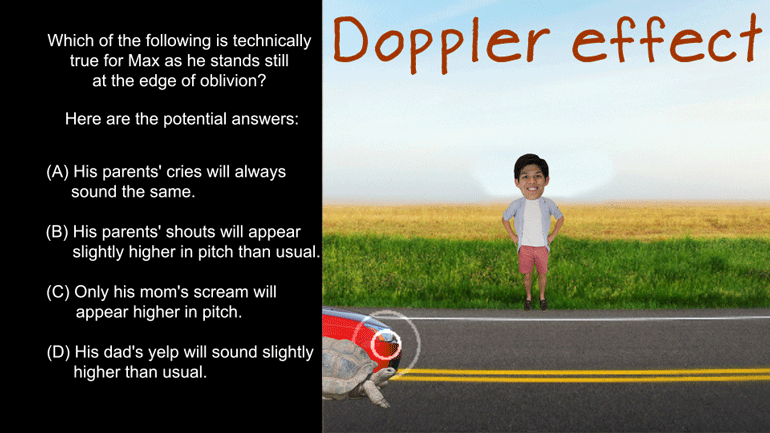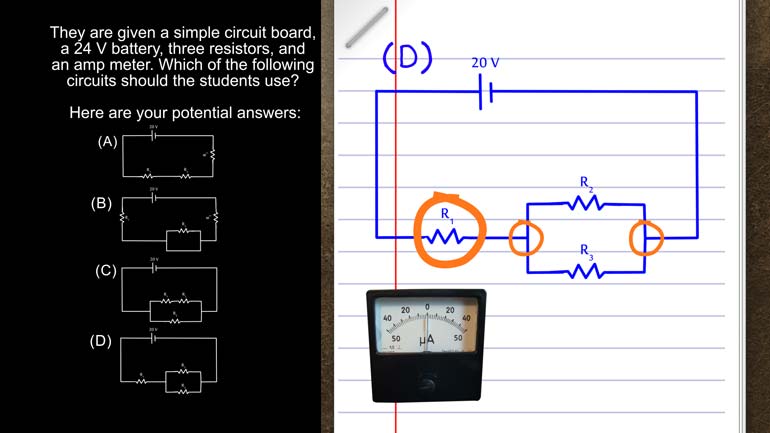ShmoopTube
Where Monty Python meets your 10th grade teacher.
Search Thousands of Shmoop Videos
AP Physics 1: 3.1 Object Interaction and Forces 202 Views
Share It!
Description:
It takes a tiny village to build a tiny renewable energy source.
Transcript
- 00:02
All right here's your shmoop du jour brought to you by little tiny people.
- 00:05
Sure it would be irresponsible to rule over an island full of 6-inch tall people but [Giant man kneeling over tiny people]
- 00:11
probably also feel pretty cool at least for a while. All right check out the [Giant man tied to the floor by all the small people]
- 00:15
following picture, this drippy thing here. All right in the satire Gulliver's [Picture of a mug on its side dripping water onto a cog]
- 00:19
Travels the main character ends up on the island of Lilliput which is
Full Transcript
- 00:22
inhabited by tiny people. To supply power to the island the Lilliputians chief
- 00:27
electrical engineer has rigged that tiny paddle wheel with a radius of 3
- 00:32
centimeters to a motor that generates power. Waterfalls spin the wheel and a
- 00:37
single water droplet hits each paddle. Each water droplet is 1 gram which is
- 00:42
enough to move the paddle. Which of the following changes to the system will
- 00:46
result in a larger power output and here are the potential answers. [Potential answers appear]
- 00:54
Let's get these folks some more power so they can charge their tiny iPhones and [Static ball]
- 00:58
blast their teeny little air conditioners. Well Lilliput gets pretty
- 01:03
warm this time of year you know... Well torque equals force times the distance
- 01:06
from the axis at which the force is applied on the spinny thing, multiplied [Water wheel spinning]
- 01:12
by the sine of the angle created by the force vector and whatever part of the
- 01:16
spinny thing the force is being applied to. Well spinny thing by the way is a
- 01:20
special physics term... So which of the answers will increase the right side of [Man studying at a computer]
- 01:24
this equation. Well (A) definitely will not do it. If we decrease r we'll only
- 01:29
decrease the torque, same thing with answer B if we decrease the mass of the
- 01:34
water droplets we'll be decreasing the force acting on the wheel. After all the [Red cross drawn over answer B]
- 01:39
force of the falling water is coming from the force of gravity decrease mass [Man in a pool under a small waterfall]
- 01:43
and you'll be decreasing the force of gravity right alongside. And answer (D) is
- 01:48
really a zero-sum situation if two drops hit half the paddles well the total [Red cross drawn over answer D]
- 01:54
force is going to remain about the same. But if we move the paddle so the water
- 01:58
is hitting farther from the center then we're increasing that radius. Remember R [Man pulls the wheel to increase the distance]
- 02:04
doesn't mean the total length of the moment arm it means the distance from
- 02:09
the center of the wheel and where the force is being applied.
- 02:13
Its like if you have a five meter long lever and you only push on it at the 1 meter [Lever appears]
- 02:17
mark you basically just made yourself a 1 meter lever. Well those other 4 meters [Hand pushes on the lever]
- 02:23
of lever aren't doing you any good moving the force farther from the center
- 02:27
means a bigger R and that means more torque so the correct answer is (C). Okay [Hand pushes on the end of the lever]
- 02:32
there little dudes plug in your tiny little electric cars and crank up those
- 02:36
cute little washing machines, if only we could solve our energy problems with the [Tiny car drives next to man tied down]
- 02:40
you know a few drops of water...
Up Next
AP Physics 1: 2.5 Changes and Conservation Law. At what point(s) in this situation is energy lost in any form?
Related Videos
AP Physics 1: 1.4 Waves. Which of the following is technically true for Max as he stands at the edge of oblivion?
AP Physics 1: 1.4 Changes and Conservation Laws. Find the current across R2.
AP Physics 1: 2.4 Changes and Conservation Laws. Which of the following circuits should the students use?
AP Physics 1: 1.5 Waves. What can possibly occur when the two waves reach each other?




